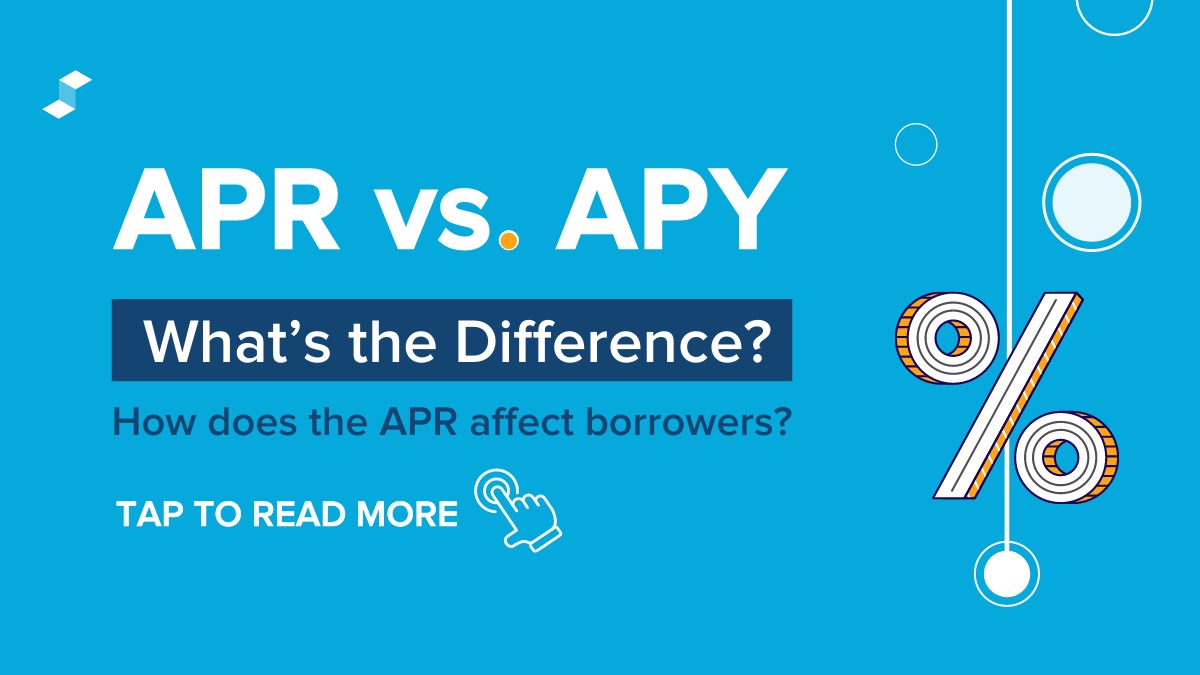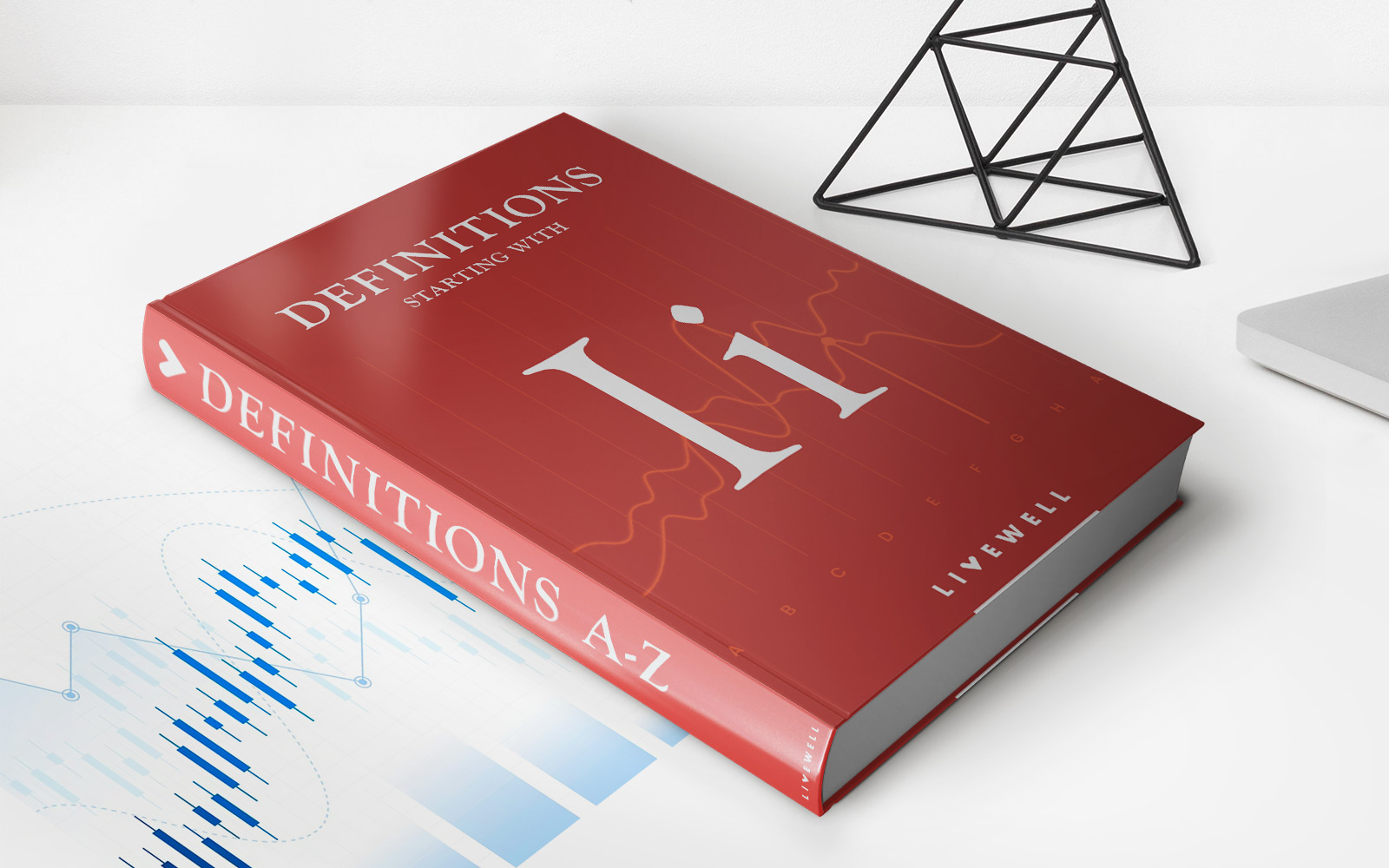Home>Finance>What Is The Difference Between Homeowners Insurance And Renters Insurance?


Finance
What Is The Difference Between Homeowners Insurance And Renters Insurance?
Published: November 16, 2023
Learn the key distinctions between homeowners insurance and renters insurance plans. Understand the financial implications and choose the right coverage for your needs.
(Many of the links in this article redirect to a specific reviewed product. Your purchase of these products through affiliate links helps to generate commission for LiveWell, at no extra cost. Learn more)
Table of Contents
- Introduction
- Definition of Homeowners Insurance
- Definition of Renters Insurance
- Coverage and Benefits of Homeowners Insurance
- Coverage and Benefits of Renters Insurance
- Similarities between Homeowners Insurance and Renters Insurance
- Differences between Homeowners Insurance and Renters Insurance
- Factors to Consider When Choosing Homeowners Insurance
- Factors to Consider When Choosing Renters Insurance
- Conclusion
Introduction
Welcome to the world of insurance! If you’re a homeowner or a renter, you’ve probably heard the terms “homeowners insurance” and “renters insurance” thrown around. But do you know the difference between the two? While both types of insurance provide coverage for your belongings and protect you from liability, there are some key distinctions that you should be aware of.
Homeownership is a significant milestone in many people’s lives. However, it also comes with its fair share of responsibilities, such as protecting your investment and ensuring the safety of your property. Homeowners insurance is specifically designed to provide financial protection against potential risks and damages that may occur to your home and its contents.
On the other hand, if you’re renting a home, condo, or apartment, you may not be responsible for insuring the physical structure itself, but that doesn’t mean you can afford to be without insurance. Renters insurance is there to protect your personal belongings and provide liability coverage in case of accidents or damages caused to others while on your rented property.
In this article, we will delve into the details of homeowners insurance and renters insurance, exploring their coverage, benefits, and the factors you should consider when choosing the right policy for your needs. So, whether you’re a homeowner looking for comprehensive protection or a renter aiming to safeguard your belongings, keep reading to understand the differences between homeowners insurance and renters insurance.
Definition of Homeowners Insurance
Homeowners insurance, also known as home insurance, is a type of property insurance that provides financial coverage for your home, its contents, and liability against certain risks and perils. It is essentially a contract between you and an insurance company, where you pay a premium in exchange for protection and indemnity in the event of damage, loss, or liability.
This type of insurance typically covers the physical structure of your home, including the roof, walls, foundation, and other permanent fixtures. It also extends coverage to detached structures, such as garages and sheds, and may include coverage for additional living expenses if you’re temporarily displaced due to covered damages.
Homeowners insurance offers protection against a wide range of risks, including fire, theft, vandalism, windstorms, lightning strikes, and certain natural disasters. However, it’s important to note that every policy has its limitations and exclusions, so it’s crucial to review your specific coverage to understand what is and isn’t protected.
Additionally, homeowners insurance provides liability coverage, which protects you in the event that someone is injured on your property and you are found legally responsible. This can help cover medical expenses, legal fees, and potential damages. It’s important to choose a liability limit that adequately protects your assets and potential future earnings.
When determining the cost of your homeowners insurance premium, several factors are taken into account, including the location of your home, its age, construction type, coverage limits, deductibles, and any additional endorsements or add-ons you opt for. It’s essential to review your policy regularly to ensure that you have adequate coverage based on changes in the value of your home and possessions.
Now that we have a clear understanding of what homeowners insurance entails, let’s explore renters insurance and how it differs from homeowners insurance.
Definition of Renters Insurance
Renters insurance, also known as tenant insurance or apartment insurance, is a type of insurance policy designed to protect individuals who rent their homes, apartments, or condos. While landlords typically have insurance coverage for the physical structure of the rental property, it is the responsibility of the tenant to insure their belongings and provide liability coverage.
Renters insurance provides coverage for your personal belongings, including furniture, appliances, electronics, clothing, and other valuables. It offers financial protection in case of theft, fire, vandalism, and certain natural disasters outlined in the policy. Just like homeowners insurance, renters insurance has some limitations and exclusions, so it’s crucial to review your policy to understand what is covered and any specific deductible requirements.
In addition to personal property coverage, renters insurance also provides liability coverage. This protects you in case someone is injured while in your rented space, and you are found legally responsible. It can help cover medical expenses, legal fees, and potential damages, preventing you from facing significant financial consequences.
One key aspect of renters insurance is that it can provide coverage for additional living expenses if you are temporarily unable to occupy your rented space due to a covered loss. This coverage can help pay for alternate accommodations, meals, and other necessary expenses until you are able to return home.
Similar to homeowners insurance, the cost of renters insurance depends on several factors, including the location of your rental property, coverage limits, deductible options, and any additional endorsements or add-ons you choose. It’s important to carefully assess the value of your belongings and select coverage that adequately protects them.
As a renter, it’s important to understand that your landlord’s insurance does not cover your personal belongings or provide liability protection for you. That’s why renters insurance is essential to safeguard your possessions and provide you with peace of mind.
Now that we have defined both homeowners insurance and renters insurance, let’s discuss the coverage and benefits provided by each.
Coverage and Benefits of Homeowners Insurance
Homeowners insurance offers a comprehensive range of coverage and benefits to protect your home and provide peace of mind. Here are some key aspects of homeowners insurance:
- Property Coverage: Homeowners insurance typically covers the physical structure of your home, including the dwelling itself, as well as any attached structures such as garages or fences. It also extends coverage to detached structures on your property such as sheds. This coverage helps protect against damages caused by various perils, including fire, storms, vandalism, and theft.
- Personal Property Coverage: In addition to covering the physical structure, homeowners insurance also provides coverage for your personal belongings inside the home, such as furniture, appliances, electronics, clothing, and valuable items. This coverage helps protect against loss or damage due to covered perils both inside and outside the home.
- Liability Coverage: Homeowners insurance includes liability coverage, which protects you in case you are found legally responsible for injuries to someone else or damage to their property while on your premises. For example, if a guest slips and falls in your home, this coverage can help cover their medical expenses and potential legal fees.
- Additional Living Expenses: If your home becomes uninhabitable due to a covered loss, homeowners insurance provides coverage for additional living expenses. This can include the cost of temporary accommodations, meals, and other necessary expenses until you can return home.
- Medical Payments Coverage: Homeowners insurance also often includes medical payments coverage, which can help cover medical expenses for guests who are injured on your property, regardless of fault.
- Optional Coverages: Depending on your needs, homeowners insurance policies often offer optional coverages that you can add on for additional protection. This can include coverage for valuable items, identity theft, water damage, and more.
It’s important to review the specific details of your homeowners insurance policy to understand what is covered and any limits or exclusions that may apply. Also, consider reassessing your coverage periodically to ensure it aligns with the current value of your home and belongings.
Next, let’s explore the coverage and benefits provided by renters insurance.
Coverage and Benefits of Renters Insurance
Renters insurance offers crucial protection for your personal belongings and liability as a tenant. Here are the key coverage and benefits provided by renters insurance:
- Personal Property Coverage: Renters insurance covers your personal belongings, including furniture, electronics, clothing, and other valuables, against loss or damage from perils such as fire, theft, vandalism, and certain natural disasters. This coverage extends not only to your rental unit but also to your belongings outside of it, such as when you’re traveling or temporarily relocating.
- Liability Coverage: Renters insurance includes liability coverage, which protects you in case someone is injured while inside your rented space and you are found legally responsible. This coverage can help cover medical expenses, legal fees, and potential damages, providing you with financial protection and peace of mind.
- Additional Living Expenses: If your rental unit becomes uninhabitable due to a covered loss, renters insurance can help cover your temporary living expenses, including the cost of alternative accommodations, meals, and other necessary expenses until you can return home.
- Medical Payments Coverage: Similar to homeowners insurance, renters insurance often includes medical payments coverage. This coverage can help pay for medical expenses if a guest is injured while in your rented space, regardless of fault.
- Loss of Use Coverage: Renters insurance typically provides loss of use coverage, which covers expenses associated with temporary relocation if your rental unit is rendered uninhabitable due to a covered loss. This can include costs like hotel bills, utilities, and even transportation.
- Optional Coverages: Depending on your insurance provider, you may have the option to add additional coverage to your renters insurance policy. This can include coverage for valuable items, identity theft, and specific perils not covered by the standard policy.
It’s important to carefully review your renters insurance policy to understand the specific coverage, limits, and exclusions. It’s also advisable to periodically reassess your coverage to ensure it adequately protects your belongings and aligns with any changes in your living situation or the value of your possessions.
Now that we’ve explored the coverage and benefits of both homeowners insurance and renters insurance, let’s examine the similarities between the two.
Similarities between Homeowners Insurance and Renters Insurance
While homeowners insurance and renters insurance have distinct purposes, there are several similarities between the two types of insurance. Understanding these similarities can help you make informed decisions when choosing the right insurance policy for your needs. Here are some commonalities between homeowners insurance and renters insurance:
- Personal Property Coverage: Both homeowners insurance and renters insurance provide coverage for your personal belongings. Whether you own a home or rent a property, it’s important to protect your valuables, such as furniture, electronics, and clothing, from perils like theft, fire, or vandalism.
- Liability Coverage: Both types of insurance policies include liability coverage. This means that if someone is injured on your property and you are found legally responsible, whether you’re a homeowner or a renter, your insurance can help cover medical expenses, legal fees, and potential damages.
- Additional Living Expenses: In situations where your home or rental unit becomes uninhabitable due to a covered loss, both homeowners insurance and renters insurance can provide coverage for additional living expenses. This coverage helps with the cost of temporary accommodations, meals, and other necessary expenses until you can return to your home or find a new place to live.
- Medical Payments Coverage: Another similarity is the inclusion of medical payments coverage. This coverage can help pay for medical expenses if a guest is injured on your property, regardless of fault. It provides a financial safety net and can help protect you from potential lawsuits.
- Optional Coverages: Both homeowners and renters insurance policies often offer optional coverages that you can add on for additional protection. This can include coverage for valuable items, identity theft, water damage, and more. It’s important to review these options and consider any specific needs or concerns you may have.
While there are similarities, it’s important to remember that homeowners insurance and renters insurance serve different purposes based on your living situation. Homeowners insurance covers the physical structure of your home, while renters insurance focuses on protecting your personal belongings and providing liability coverage as a tenant.
Now that we understand the similarities, let’s explore the differences between homeowners insurance and renters insurance.
Differences between Homeowners Insurance and Renters Insurance
While homeowners insurance and renters insurance have some similarities, they also have several key differences that reflect the varying needs and responsibilities of homeowners and renters. Here are some notable differences between the two types of insurance:
- Coverage of Physical Structure: Homeowners insurance covers the physical structure of your home, including the dwelling, attached structures like garages, and sometimes even landscaping. Conversely, renters insurance does not provide coverage for the physical structure but focuses solely on protecting your personal belongings and providing liability coverage as a renter.
- Insurance Responsibility: Homeowners are generally responsible for insuring the property they own, including the physical structure, while renters are not. Landlords typically have insurance coverage for the physical structure of the rental property, but it does not extend to the tenants’ belongings. Therefore, renters need to secure their own renters insurance policy to protect their personal property and liability.
- Ownership and Investment: Homeowners insurance is necessary for individuals who own their homes as it helps protect their investment and the equity they have built. On the other hand, renters insurance is essential for tenants to protect their personal belongings and provide liability coverage, as they do not have an ownership stake in the property.
- Cost of Insurance: Homeowners insurance generally tends to be more expensive than renters insurance due to the additional coverage it provides for the physical structure. The cost of homeowners insurance can vary based on factors such as the value of the home, location, construction materials, and more. Renters insurance, on the other hand, is typically more affordable since it primarily focuses on personal property and liability protection.
- Insurance Requirements: While homeowners insurance may be mandatory or strongly recommended by mortgage lenders, renters insurance is not typically required by landlords. However, it is highly advisable for renters to have insurance coverage to protect their personal belongings and provide liability coverage in case of accidents or damages.
Understanding these differences can help you determine which type of insurance is appropriate for your specific situation. Whether you own a home or rent a property, it’s crucial to have the right insurance coverage to safeguard your assets and provide financial protection.
Now that we’ve explored the differences between homeowners insurance and renters insurance, let’s address some important factors to consider when choosing these insurance policies.
Factors to Consider When Choosing Homeowners Insurance
Choosing the right homeowners insurance policy is essential to protect your most valuable asset – your home. Here are some key factors to consider when selecting homeowners insurance:
- Dwelling Coverage: Ensure that the policy provides adequate coverage for the replacement cost of your home in the event of a total loss. The coverage amount should reflect current construction costs and account for any renovations or improvements made to the property.
- Personal Property Coverage: Evaluate the coverage limits for personal belongings and ensure it is sufficient to replace your possessions in case of theft, damage, or loss. Consider any high-value items, such as jewelry or artwork, which may require additional coverage or scheduled endorsements.
- Liability Coverage: Review the liability coverage limits to ensure they are sufficient to protect your assets and future earnings in case of a lawsuit. Consider your lifestyle and potential risks associated with inviting guests onto your property.
- Deductible Amount: Determine the deductible amount you’re comfortable paying out of pocket in the event of a claim, as this affects your premium. Higher deductibles generally result in lower premiums, but ensure you can afford the deductible at short notice.
- Additional Coverages: Assess any additional coverage options provided by the insurance company, such as coverage for water damage, identity theft, or personal umbrella coverage. Consider your specific needs and potential risks to determine if these add-ons are necessary.
- Claims Process: Research the insurance company’s reputation for customer service, claims handling, and response time. Read reviews or seek recommendations to gain insights into the company’s reliability and customer satisfaction.
- Discounts and Bundling: Inquire about available discounts, such as multi-policy discounts for bundling your homeowners insurance with other insurance policies, home security systems, or impact-resistant roofing materials. These discounts can help lower your premium.
- Insurance Provider: Consider the financial stability and reputation of the insurance company. Look for insurers with strong financial ratings to ensure they can fulfill their obligations in the event of a claim.
It’s important to compare multiple homeowners insurance quotes to find the best coverage at a competitive price. Consider consulting with an insurance agent or broker who can help evaluate your specific needs and recommend suitable policies.
Now, let’s discuss the factors to consider when choosing renters insurance.
Factors to Consider When Choosing Renters Insurance
When it comes to choosing renters insurance, there are several factors to consider to ensure you have the right coverage for your needs. Here are some key factors to consider when selecting renters insurance:
- Personal Property Coverage: Evaluate the coverage limits for personal belongings to ensure they are sufficient to replace your possessions in case of theft, damage, or loss. Take inventory of your belongings and estimate their value to determine an appropriate coverage amount.
- Liability Coverage: Assess the liability coverage limits to ensure they are adequate to protect your assets in case of a lawsuit. Consider potential risks within your rented space, such as accidents or injuries to guests, and ensure your liability coverage can provide sufficient protection.
- Deductible Amount: Determine the deductible amount you are comfortable paying out of pocket before your insurance coverage kicks in. Higher deductibles typically result in lower premiums, but make sure you can afford the deductible in case of a claim.
- Additional Living Expenses Coverage: Consider the coverage for additional living expenses if your rental unit becomes uninhabitable due to a covered loss. Ensure the coverage is sufficient to cover the cost of temporary accommodations, meals, and other necessary expenses during the displacement.
- Discounts and Bundling: Inquire about available discounts, such as bundling renters insurance with other insurance policies or discounts for safety features in your rental unit, like smoke detectors or security systems. These discounts can help reduce your premium.
- Claims Process: Research the insurance company’s reputation for excellent customer service, claims handling, and response time. Read reviews and seek recommendations to gauge the company’s reliability and customer satisfaction.
- Insurance Provider: Consider the financial strength and reputation of the insurance company. Look for insurers with strong financial ratings to ensure they can fulfill their obligations in the event of a claim.
Take the time to compare renters insurance quotes from multiple insurers to find the best coverage at a competitive price. Consult with an insurance agent or broker who specializes in renters insurance to help determine your specific needs and guide you through the selection process.
Remember that your renters insurance policy is customizable, so you can add endorsements or additional coverages to tailor the policy to your specific needs. Review your policy regularly and update your coverage as necessary to ensure you have adequate protection for your belongings and liability.
Now that we’ve discussed the factors to consider when choosing renters insurance, let’s wrap up our discussion.
Conclusion
Homeowners insurance and renters insurance are both crucial forms of protection that offer coverage and peace of mind in different living situations. While homeowners insurance focuses on protecting the physical structure of a home and the belongings of homeowners, renters insurance is designed to protect the personal property and liability of tenants. Understanding the differences and similarities between these two types of insurance is essential for selecting the right coverage for your needs.
Homeowners insurance provides coverage for the physical structure of your home, personal property, liability, and additional living expenses. It is particularly important for homeowners to protect their investment and assets. On the other hand, renters insurance focuses on protecting personal belongings, liability, and providing coverage for additional living expenses in case of an uninhabitable rental unit.
When choosing homeowners insurance, factors such as dwelling coverage, personal property coverage, liability coverage, deductible amount, and optional coverages should be carefully considered. It’s also important to assess the claims process, available discounts, and the reputation of the insurance provider.
Similarly, when selecting renters insurance, it is vital to consider factors such as personal property coverage, liability coverage, deductible amount, additional living expenses coverage, discounts and bundling options, claims process, and the credibility of the insurance provider.
By assessing these key factors and comparing multiple insurance quotes, you can ensure that you have the right coverage to protect your assets, personal belongings, and finances. It’s advisable to review your insurance policies periodically to ensure that they align with any changes in your living situation or the value of your possessions.
Remember, while insurance provides financial protection, it’s also important to take preventive measures to ensure the safety and security of your home or rental unit. This includes installing security features, maintaining safety precautions, and taking steps to prevent accidents or damages.
Ultimately, whether you’re a homeowner or a renter, having the right insurance coverage can bring peace of mind and protect you from potential financial hardships. Prioritize understanding and selecting the appropriate homeowners or renters insurance policy to safeguard your home, belongings, and personal liability.














